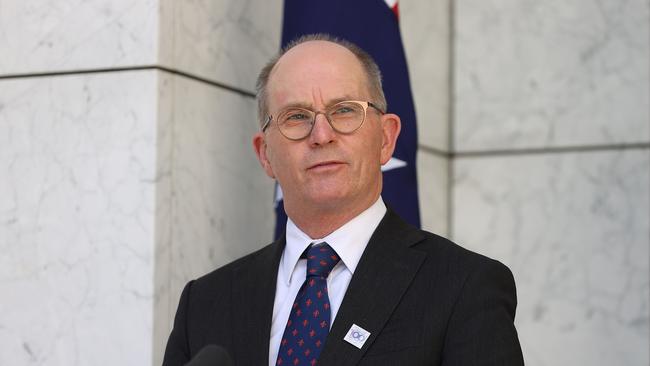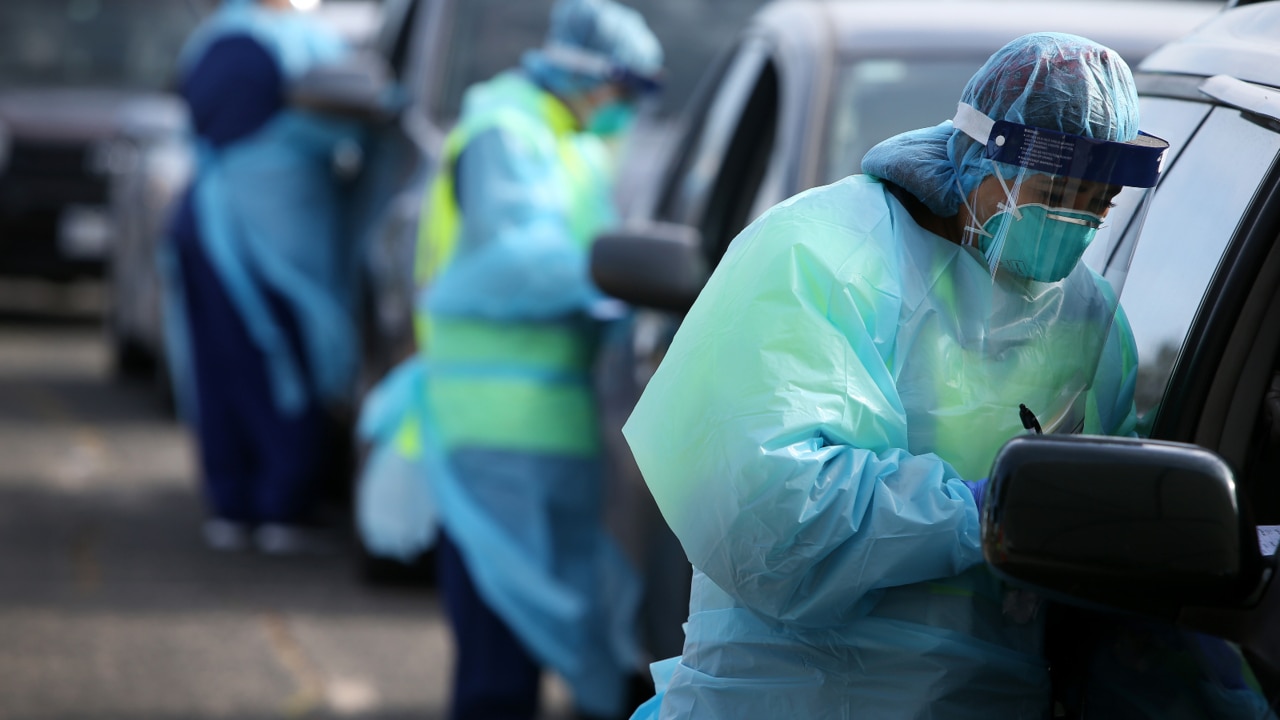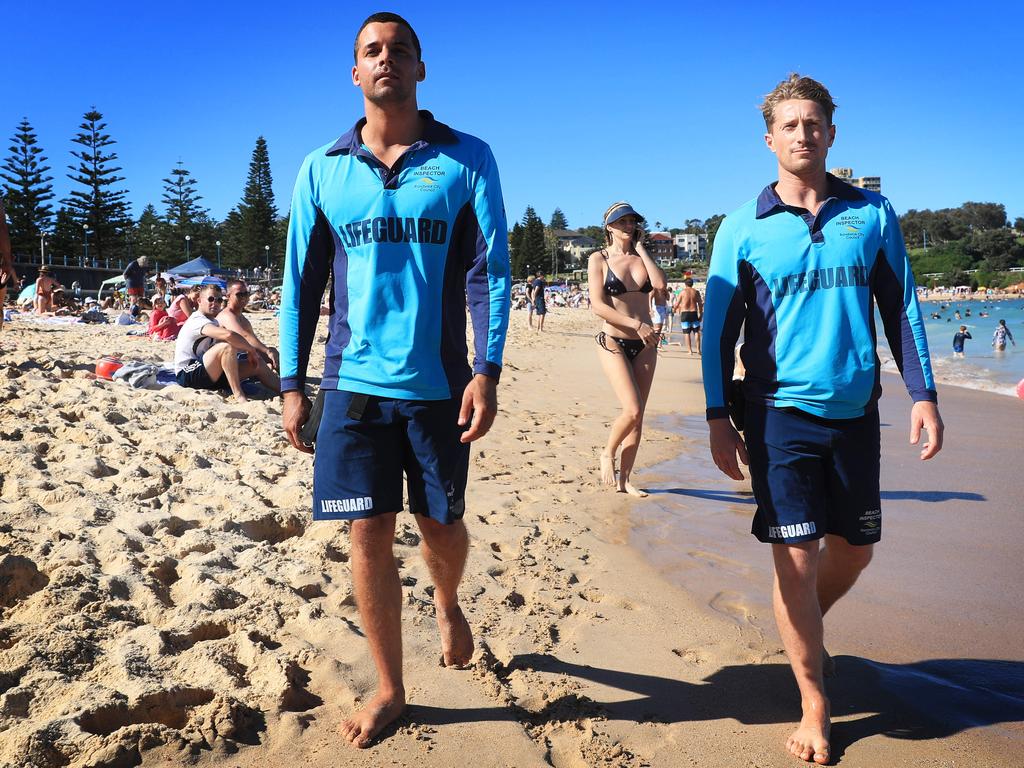No surge in Omicron ICU cases, says health chief Paul Kelly
New research finding the Omicron variant of Covid-19 is 73 per cent less severe than previous variants has boosted confidence that intensive care admissions will remain low despite high case numbers.

New research finding the Omicron variant of Covid-19 is 73 per cent less severe than previous variants has boosted confidence among senior federal health officials that intensive care admissions will remain low despite high case numbers.
Chief medical officer Paul Kelly cited the South African research as he declared the evidence was mounting that the Omicron variant was significantly less dangerous than previous variants of the virus.
Professor Kelly said the trend found in the South African research was being reflected in Australia’s hospitalisation rates.
“We have had good news overnight, there was a preprint paper that I read from South Africa, which is a different country to us in various ways, but they have had the longest and most extensive experience of this particular form of the Covid-19 virus, the Omicron variant,” he said.
“They are seeing a 73 per cent decrease in severity. And that is becoming very clear now, in terms of their measures of severity with this virus.
“That is similar to what we’re seeing in Australia … the hospitalisations, ICU and ventilation rates in Australia, they’re extremely low compared with what we were seeing with Delta and in the pre-vaccination era, with other variants of the virus.”
Professor Kelly said that despite record high cases across the states and territories, just 1481 out of 110,000 cases had led to hospitalisations, with just 122 in intensive care and 51 on ventilators nationwide.
“It is a different virus, very different from previous versions of the virus we have seen over the last two years,” he said.

“What is the difference? We know it is very transmissible, it is at least as transmittable as Delta. And it is transmitting fast in the community as we have seen, 110,000 active cases now in Australia, and … continuing to rise. I expect it will continue to rise.”
Scott Morrison confirmed that the nation’s hospitalisation rate remained relatively constant, despite the soaring case numbers across the country – including more than 12,000 cases in NSW on Thursday – and announced a raft of changes to isolation and testing.
“We are seeing that the severity of this illness, the impact, particularly on those who are in hospitals, in the most extreme illness situations, is remaining relatively constant, and that is an experience we are seeing in other countries as well,” the Prime Minister said.
“The higher number of cases we are seeing, and we are going to continue to see, that is the nature of Omicron.
“It replicates itself very, very quickly. That means we need to change who is a close contact, how they are isolated and how they test.”
South Australian Premier Steven Marshall confirmed that a toddler, under the age of two, who tested positive for Covid-19 had died. Mr Marshall described the death as “distressing” news, and that the cause of the child’s death would be investigated by the coroner, as case numbers climb across the state, with 1374 new cases on Thursday, and 37 people in hospital including four in intensive care.
“It is similar to the 94-year-old woman we reported the other day when we knew she had passed away with Covid, but not necessarily of Covid,” he said.
NSW recorded a record high with 12,226 new local cases in the state on Thursday and one death, though hospitalisations remained relatively stable at 746 people, including 63 in intensive care and 24 requiring ventilation.
Victoria recorded 5137 Covid-19 cases and 13 deaths, with 395 people being treated in hospital, including 55 in intensive care and 23 on ventilation.
Queensland recorded 2222 Covid-19 cases and seven deaths, though hospitalisations remained low at 29 patients with the virus.
The ACT recorded 253 Covid-19 cases, with just six people in hospital, Tasmania recorded 97 new cases with three people in hospital, the Northern Territory recorded 37 and Western Australia recorded one new case.








To join the conversation, please log in. Don't have an account? Register
Join the conversation, you are commenting as Logout